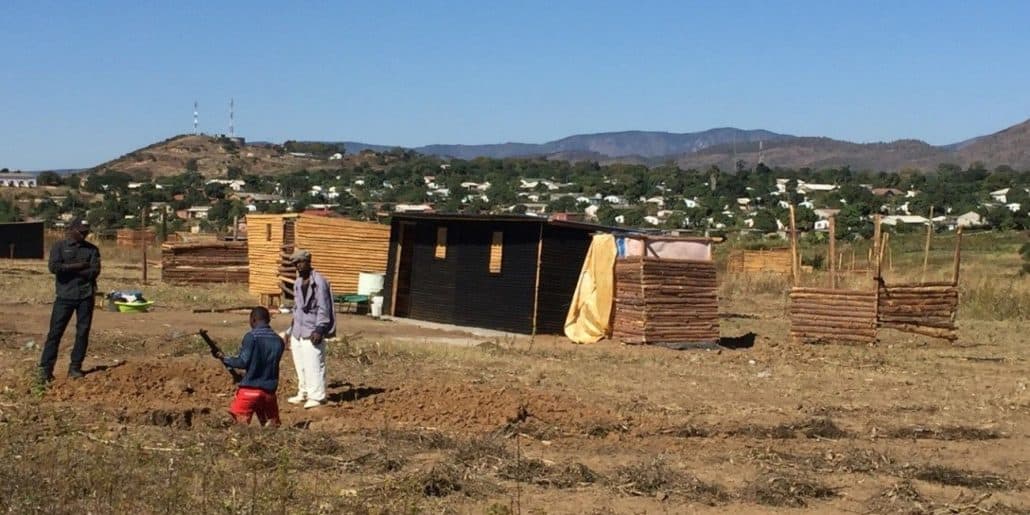Transparency International (TI) has developed a comprehensive training manual to support journalists in Africa who are investigating and reporting stories of land corruption. The manual is titled Investigating Land and Corruption in Africa.
Corruption in land-related services in Africa is an endemic problem that has affected every second citizen on the continent in recent years, according to research from TI. Women are especially vulnerable, because they depend on land as a resource.
Land corruption is the abuse of entrusted power for private gain while carrying out the functions of land administration and land management. It could take the form of a bribe demanded by a housing official, a dodgy business deal between private investors and local authorities that forces local communities off their land, customary laws that deny women their land rights, or a fraud scheme by bogus property developers. This kind of corruption plays out in the public and private sectors and affects rural and urban citizens alike.
Women, meanwhile, are vulnerable to additional forms of corruption, including traditions preventing them from inheriting land, bribery and sexual extortion by community leaders and land officials, and multinational investors appropriating land traditionally worked by women. In this way women’s livelihoods and social standing are undermined and, ultimately, they remain in poverty.
For communities, says TI, the effects of land corruption include insecure tenure, food insecurity, barriers to socio-economic development, increased risk of conflict, and a threat to traditional ways of life. For nation-states, the continued presence of land corruption exacts a toll on national economies and stands in the way of achieving many of the Sustainable Development Goals.
Land corruption an under-reported problem
Despite the crucial importance and the wide-ranging impacts of this issue, however, land corruption remains largely under-reported by journalists in the mainstream media and consequently, is poorly understood by their audiences. The Investigating Land and Corruption in Africa manual is TI’s response to this situation and is intended to support journalists in Africa who are investigating and reporting stories of land corruption.
And these skills are needed – TI notes that Thomson Reuters has calculated that in many sub- Saharan African countries, the loss of revenue due to untaxed profit stolen by multinational corporations, especially in land speculation and land-based extractives industries, amounts to almost 10% of GDP. This is a crippling loss for those economies.
Add to this the fact that only 1% of land in sub-Saharan Africa is mapped adequately on a land registry, and it is clear that the land sector is wide-open for corruption.
Complete training package for journalists
The training manual covers all aspects of researching, constructing, and presenting a land corruption story. It is intended for anyone that provides training or capacity-building for journalists including facilitators, trainers, lecturers and teachers, and is available at no cost. To use the resource, trainers do not have to have prior experience of investigating land issues specifically, but it is recommended that they are experienced in investigative journalism.
Sessions can be delivered offline, and computers are not needed. The manual focuses more on textual content than graphic content, meaning that it is more cost-effective to print as it uses less ink or toner. This will also make it easier to share hard copies more widely.
The course, designed to last three days, is also tailored to fit the African context and includes case studies from real-life African investigations, particularly concerning land rights. Content is divided into distinct, stand-alone modules that can be combined to create a bespoke training programme according to the needs of trainees.
The Investigating Land and Corruption in Africa training manual includes:
- 24 facilitation guides for sessions on researching, constructing and presenting cases of land corruption
- 7 assignments and activities for trainees to develop key skills
- 12 handouts covering a range of critical techniques
- 7 case studies exploring genuine investigations into cases of land corruption in Africa
The manual was written by an international team of experts, comprising South African investigative journalist and trainer Michael Schmidt, Nigeria-based journalist and land rights activist Andrea Staeritz and British journalist, author and journalism trainer Michael Griffin, with the collaboration and assistance of TI’s national chapters working on the Land and Corruption in Africa programme.

